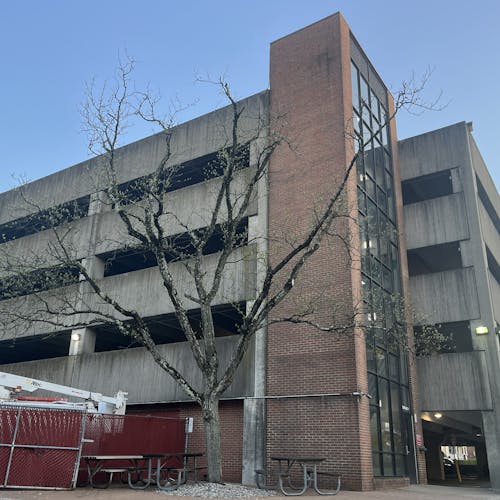Planning on using Rutgers' advising services? Here's what students had to say about their experiences

After the first in-person semester since the coronavirus disease (COVID-19) pandemic began, Rutgers students shared their thoughts and experiences with academic advising services at the University since returning to campus.
Kristina Tecson, a School of Arts and Sciences sophomore, said she first used academic advising services during her first year at Rutgers in order to create class schedules and a timeline for her time here.
Since then, she has used the School of Arts and Sciences live chat feature on multiple occasions, primarily to figure out course registration on WebReg and to receive immediate assistance for small questions.
“The first time I had to pre-register for classes back in freshman year, I didn’t know how it worked,” Tecson said. “I was in a slight panic because I didn’t want the classes to be taken so I immediately sought out the live chat for assistance and it was settled nicely.”
She said advisors have been helpful in answering all of her questions and addressing her concerns, making her experience with academic advising generally positive.
Katherine Dinh, a School of Environmental and Biological Sciences junior, said that while the University’s academic advising is helpful much of the time, sometimes it can provide incorrect information to students.
“I've gone for scheduling help my freshman year and I was given wrong information regarding labs and class recitations,” she said. “Another time, I was told that one program could count towards my capstone when that wasn't really the case.”
Dinh said she mostly interacts with academic advising services out of obligation, attending appointments or emailing with advisors. While she has had problems with advising in the past, she said advisors are still helpful and patient when answering questions about academic requirements, particularly departmental advisors.
Rudransh Gupta, a School of Arts and Sciences sophomore, said his school’s academic advisors have helped him choose an appropriate course of study and formulate a career path.
He said during his first year, he was aiming to major in computer science but was seriously struggling with the coursework. During an advising appointment, Gupta said his advisor examined his grades and concluded that his strong suit was actually mathematics.
After learning this knowledge, he decided to pursue a business major and worked with his advisor to fulfill his transfer to the Rutgers Business School, register for prerequisite courses and decide on a new major and minor. Gupta said his advisor even convinced his parents, who were initially skeptical about the change, to support his transfer.
“As it was my first time using this (academic advising) service, I had a bias that it would be useless, however, to my surprise, that session changed my whole career,” he said. “As of today, I am on track to completing my transfer to Rutgers Business School by the end of spring 2022.”
As an international student, Gupta said he also utilizes advising services provided by the University’s International Student and Scholar Services (ISSS) to address questions about visa status and work authorization requirements.
He said he faced a major issue this semester when his current visa was expiring and he had to quickly transfer to a student visa, or be forced to leave the U.S. After being unable to secure a visa interview at his home country’s consulate due to limited availability, he said he spoke to an ISSS advisor about potential options.
Gupta said the advisor suggested he apply for an extension of his current visa so that he could remain in the country even after it expires. In the meantime, he said the advisor told him to also apply for a new student visa, which he expects to receive by the end of spring 2022.
“As an international student, I feel very grateful that my university provides me with such resources to easily plan out my career,” Gupta said. “I can confidently say that for me, personally, they helped me a lot and I would definitely recommend it to other students, especially international ones.”
Additionally, he said he hopes ISSS continues to grow and switches to a larger office space so they can run more efficiently and become more well-known to international students.
For Tecson, she said the School of Arts and Sciences academic advising services can improve by allowing students to book advising appointments a month in advance so they can plan ahead.
Lenore Neigeborn, associate dean of advising and academic services at the School of Arts and Sciences, said the advising team regularly revises its programs to fit students’ changing needs.
She said that in recent years, the School of Arts and Sciences responded to student demand for increased advising appointment availability and an online scheduling system by hiring additional advisors and establishing RU Scheduler.
Julie Traxler, associate dean for academic programs at the School of Environmental and Biological Sciences, said the school is working to expand advising programs that focus on choosing a major and fulfilling the Experience-Based Education graduation requirement.
She encouraged students to better take advantage of their advising services by meeting with their advisor at least once a semester, even if they do not have any specific questions.
“Advisors know what questions students should be asking at all points in their college journey, so they can help alert a student to what should be on their to-do list,” Traxler said. “Our students are smart so they think they can just use Degree Navigator and figure things out, but advisors know the answers to the questions that students may not know to ask.”
Neigeborn said students should be prepared to seek out different advisors for various aspects of their academic life. She said students should speak to their school advisor about choosing a major and speak to a faculty advisor about which specific courses can help fulfill that major.
Additionally, she said students should be willing to actively participate in advising sessions by creating a list of specific questions they have or speaking to their advisors about their own challenges.
“Each student is on a unique journey and advisors are here to serve as guides, but each student must ultimately choose their own path,” Neigeborn said. “Every student is different — advisors need to hear from students about their goals and challenges so that we can engage in a productive exchange of ideas.”



